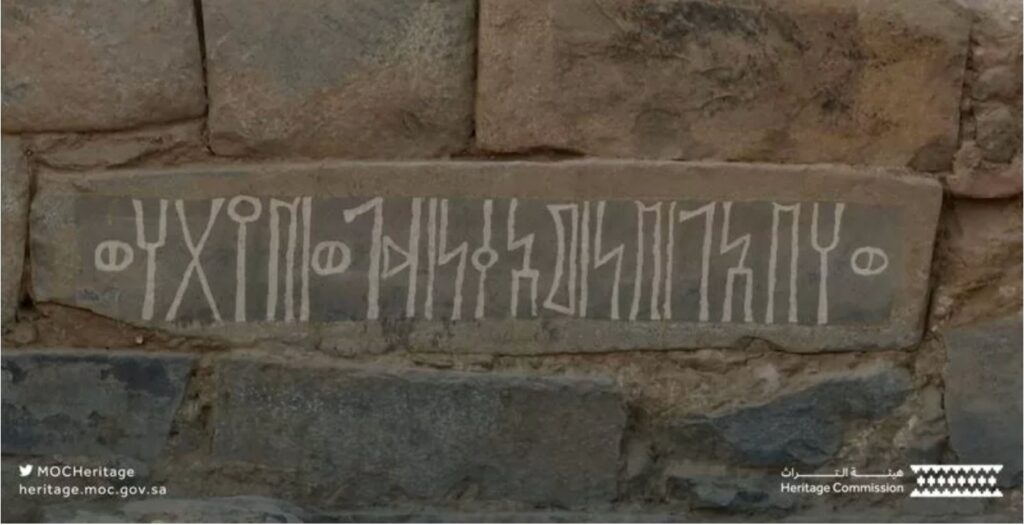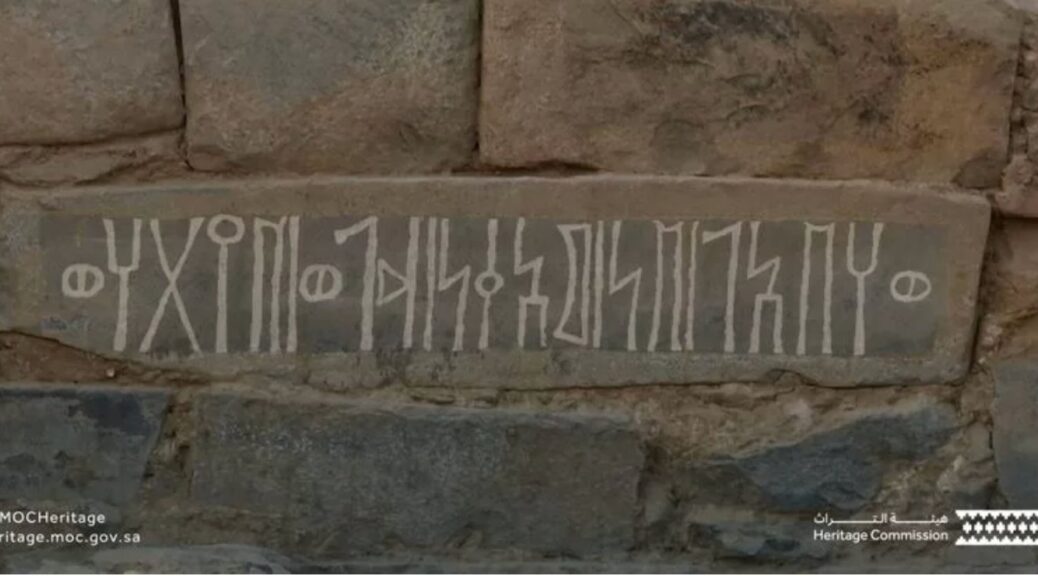A Rare Inscription in an Ancient Arabian Script Was Uncovered by Archaeologists in Saudi Arabia

Archaeologists in Saudi Arabia have discovered one of the longest-known plaques baring Musnad, or the pre-Islamic southern Arabian script, at the Al Ukhdud excavation site in the country’s Najran region.
Other artifacts, including three gold rings and a bronze bull’s head, were also uncovered.
The country’s heritage commission announced the finding of these pre-Islamic artifacts on Twitter, stating that the discoveries “shed a unique light on the ancient culture” that was present in southern Saudi Arabia. The commission called the discovery “exciting” and the finds “rare.”
Measuring seven-and-a-half feet long and one-and-a-half feet wide, the ancient inscription is the longest of its kind ever discovered at the site. It originally belonged to Wahib Eil bin Magan, who lived locally and worked as a water carrier, whose biography is detailed in the carving.
The term Musnad originated in early Islamic times to describe inscriptions written in the ancient script’s characters. Some of the earliest examples date back to the first half of the first millennium BCE.
The three rings each have a delicate golden butterfly-shaped lobe at the top and a small lock on the side connecting the ends of the circles. Other pieces found at the site include several ceramic jars and a ceramic pot believed to be from the third century BCE.
The bull’s head was commonly depicted in art across the pre-Islamic kingdoms of southern Arabia, as it symbolized power, fertility, and reproduction, as well as wisdom and divinity.
The artifact at Al Ukhdud has traces of oxidation and is currently being restored.
